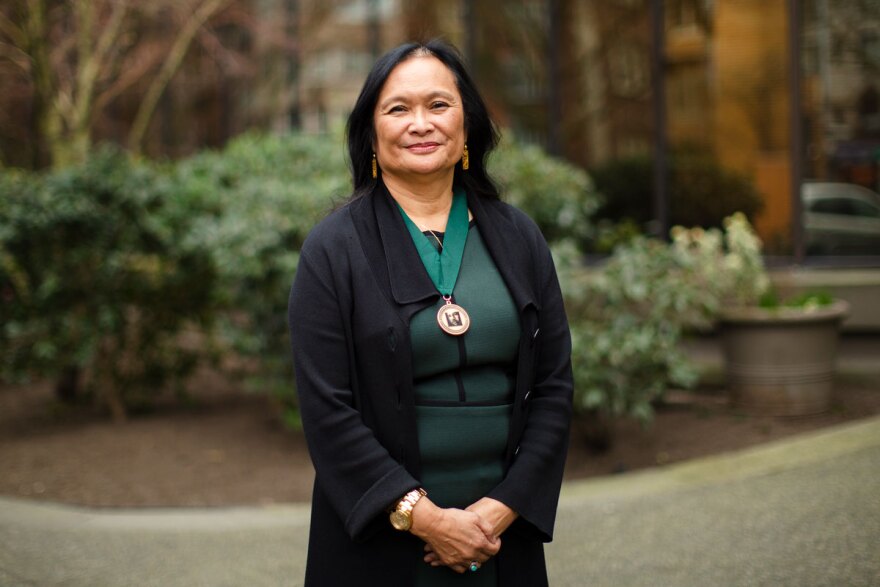This story originally aired on March 23, 2019.
Author’s note: I used to cover business and labor for KNKX and had a tiny bit of knowledge about the brutal murders of two young Filipino-American labor activists in 1981. Then, in 2018 while covering another story, I met the brother of one of the men who had been killed. He mentioned how the family and friends of Silme Domingo and Gene Viernes had always suspected that the murders had been ordered by none other than the former dictator of the Philippines, Ferdinand Marcos. I put a lot of time into producing this story to weave in archival news footage and the memories of two key people responsible for doggedly pursuing justice for the slain men. (This story originally aired March 23.)
The brutal slayings of two 29-year-old Filipino-American labor activists in Seattle on June 1, 1981, shocked the city and the wider Filipino-American community.
Silme Domingo and Gene Viernes, officers in the Cannery Workers Local 37 of the International Longshore and Warehouse Union, were gunned down in the union office in the city’s Pioneer Square neighborhood. Viernes died at the scene. Domingo was taken to Harborview Medical Center, but he succumbed to his wounds a day later.
Viernes and Domingo were idealistic, ambitious activists who had sued Alaskan canneries for race discrimination and also were trying to reform their union.

The union president, Tony Baruso, cared more about lining his own pockets than about fighting for better conditions for the seafood cannery workers, said Michael Withey, an attorney and friend of both men and author of the book, "Summary Execution: The Seattle Assassinations of Silme Domingo and Gene Viernes."
“The union had been taken over by what amounted to criminal elements,” Withey said. “Tony Baruso ran the union with an iron fist and also was accused of taking bribes, getting a cut of the gambling proceeds up in Alaska.”
Viernes was pushing to change the process for dispatching workers to Alaska, to make it based on seniority rather than bribes and influence. That threatened to interrupt the gambling operation run by the Tulisan gang, a Filipino gang enmeshed in the Cannery Workers union.
Shortly after Viernes announced the dispatch changes, he and Domingo were murdered. Domingo survived long enough to identify the shooters — two members of the Tulisan gang.
But even though the double murder started out looking like an internal union dispute, family and friends almost immediately suspected that somebody much more powerful had ordered the killings.
“I would say it took us less than 48 hours to really map out who benefitted from the murders and it was always the (Ferdinand) Marcos dictatorship who benefitted from Silme and Gene’s murders,” said Cindy Domingo, Silme’s younger sister. “So even though we didn’t know the details, we knew they were political assassinations of some type.”

Listen above to hear how Domingo, Withey and other friends and family embarked on a fight for justice that eventually led to a successful lawsuit against the former dictator of the Philippines in U.S. District Court.





